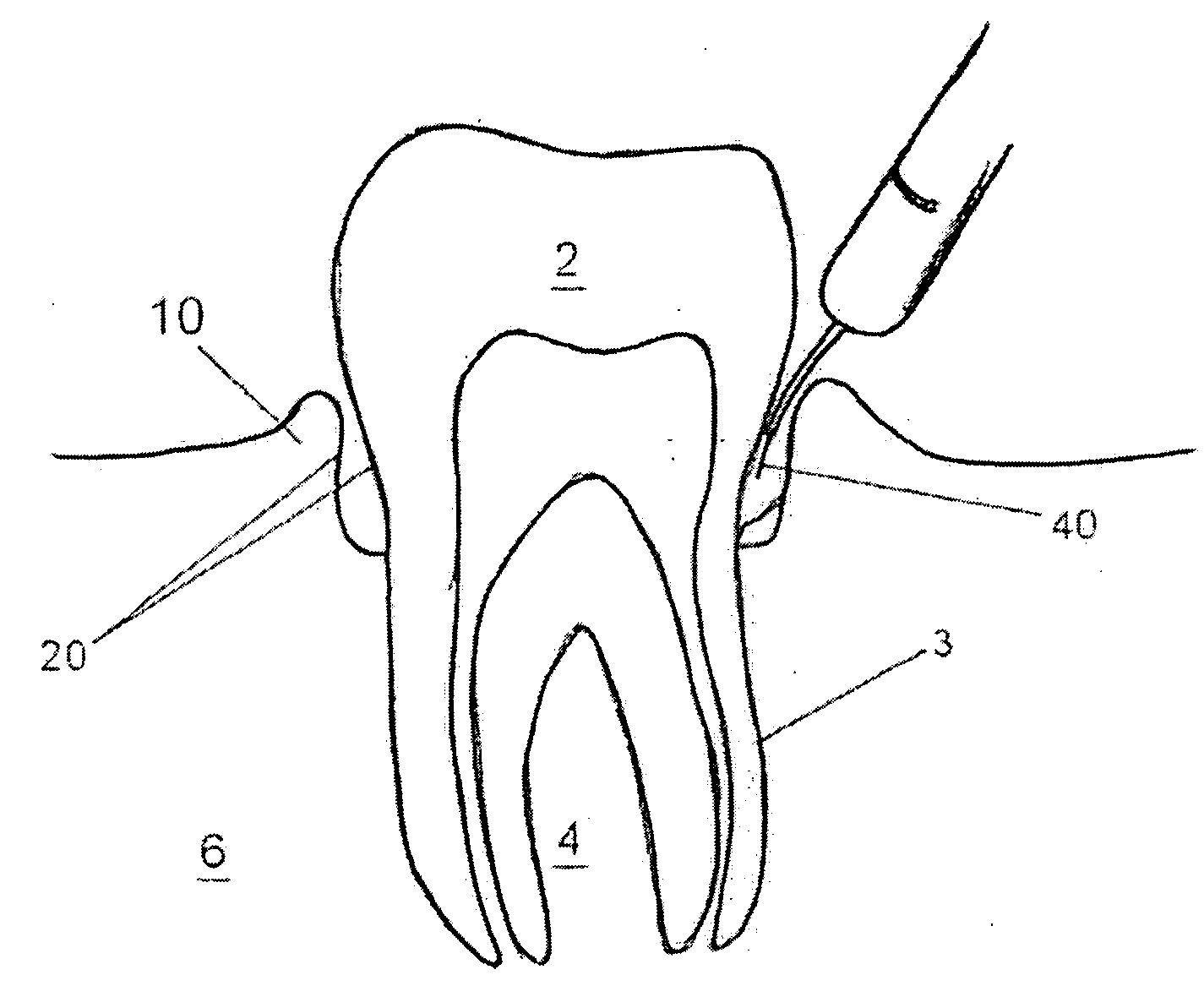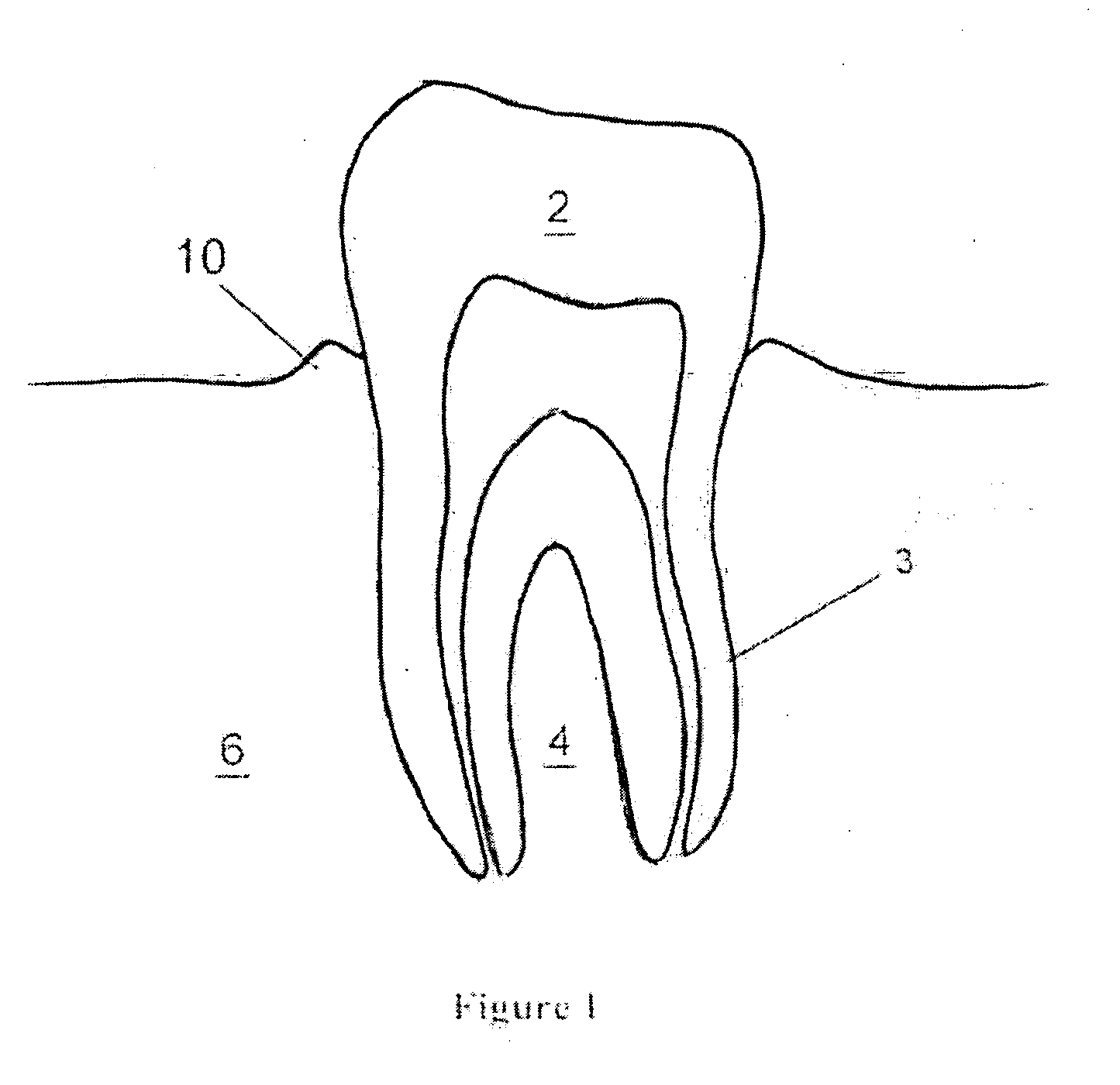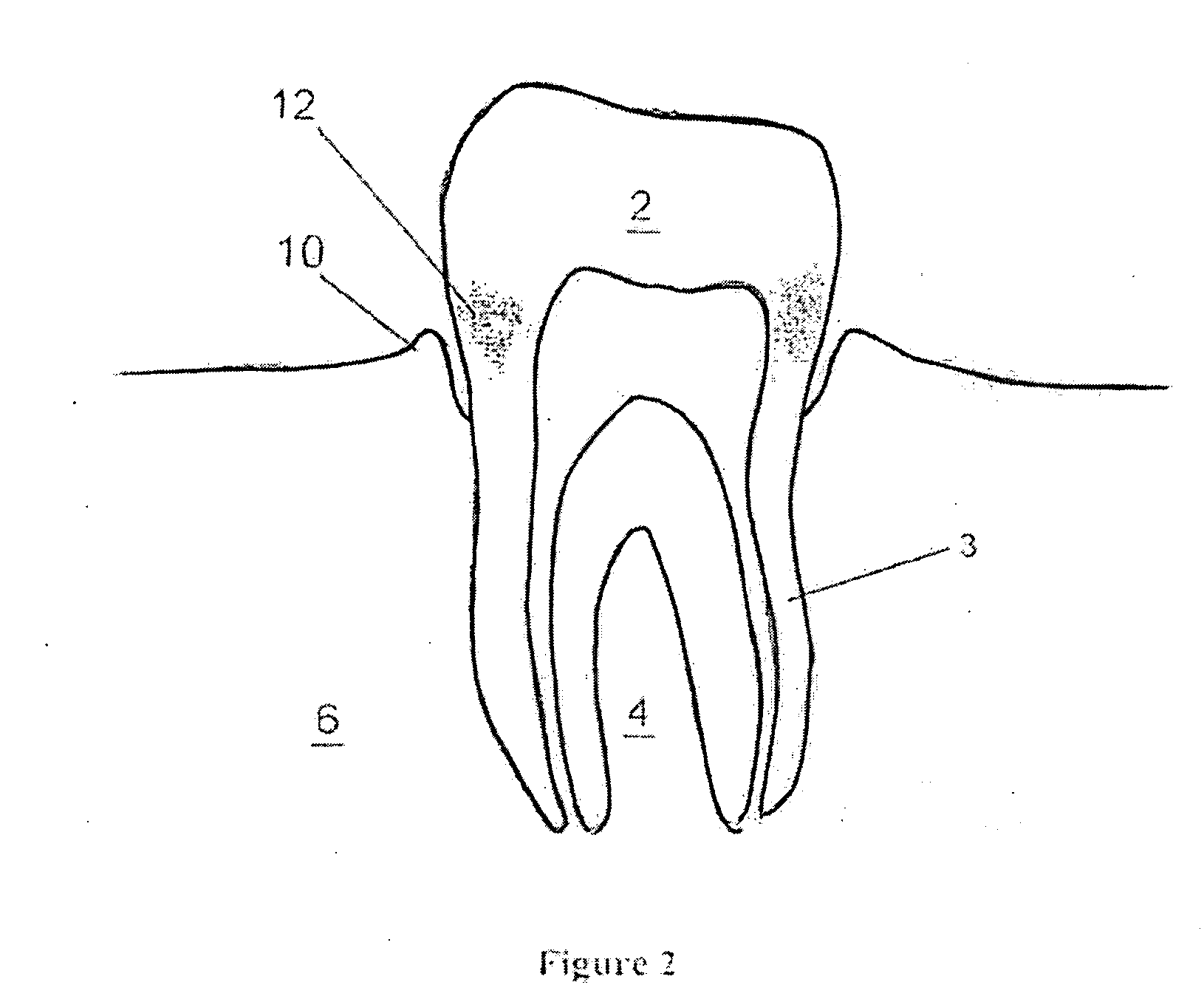Laser curettage
- Summary
- Abstract
- Description
- Claims
- Application Information
AI Technical Summary
Benefits of technology
Problems solved by technology
Method used
Image
Examples
Embodiment Construction
[0022]With reference now to the drawings, the preferred embodiment of the method of periodontal treatment is herein described. It should be noted that the articles “a”, “an” and “the”, as used in this specification, include plural referents unless the content clearly dictates otherwise. With reference to FIG. 1, a healthy tooth 2 rests in a bony socket 4 in the jaw 6. The entire area is covered by the gingiva 10, or “gums.” Over time, if left without proper oral care, tartar 12 will build up against tooth 2 (shown in FIG. 2), causing the gums 10 to recede away from the tooth and exposing the root 3 of the tooth 2 in a condition called “gingivitis.”FIG. 3 illustrates a condition further deteriorated from gingivitis, or the so-called peridontitis. Where periodontitis has occurred, the gums 10 have receded to the point of forming an open pocket 20 around the tooth 2 and its root system 3. The pocket 20 is filled with inflamed tissue 22 and infectious matter 24. If left untreated the to...
PUM
| Property | Measurement | Unit |
|---|---|---|
| Nanoscale particle size | aaaaa | aaaaa |
| Flexibility | aaaaa | aaaaa |
| Area | aaaaa | aaaaa |
Abstract
Description
Claims
Application Information
 Login to View More
Login to View More - R&D
- Intellectual Property
- Life Sciences
- Materials
- Tech Scout
- Unparalleled Data Quality
- Higher Quality Content
- 60% Fewer Hallucinations
Browse by: Latest US Patents, China's latest patents, Technical Efficacy Thesaurus, Application Domain, Technology Topic, Popular Technical Reports.
© 2025 PatSnap. All rights reserved.Legal|Privacy policy|Modern Slavery Act Transparency Statement|Sitemap|About US| Contact US: help@patsnap.com



